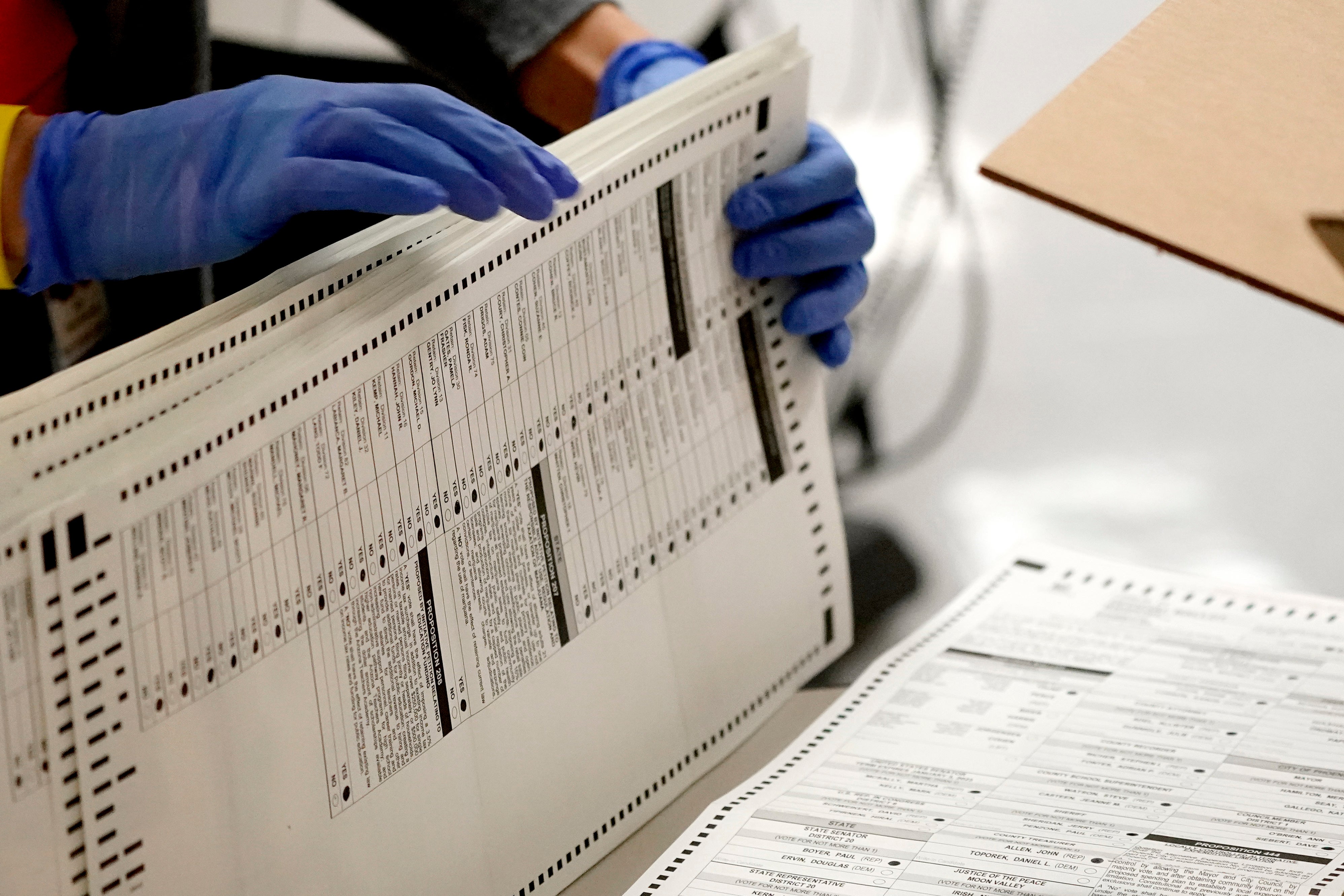‘Everybody shouldn’t be voting’: Arizona Republican defends voter restrictions as GOP pushes ‘fraud’ claims
‘We have to look at the quality of votes’

Your support helps us to tell the story
From reproductive rights to climate change to Big Tech, The Independent is on the ground when the story is developing. Whether it's investigating the financials of Elon Musk's pro-Trump PAC or producing our latest documentary, 'The A Word', which shines a light on the American women fighting for reproductive rights, we know how important it is to parse out the facts from the messaging.
At such a critical moment in US history, we need reporters on the ground. Your donation allows us to keep sending journalists to speak to both sides of the story.
The Independent is trusted by Americans across the entire political spectrum. And unlike many other quality news outlets, we choose not to lock Americans out of our reporting and analysis with paywalls. We believe quality journalism should be available to everyone, paid for by those who can afford it.
Your support makes all the difference.A Republican lawmaker in Arizona has defended GOP-sponsored legislation to restrict ballot access as a means to protect “the quality of votes” and arguing that “everybody shouldn’t be voting” as Republicans in at least 43 states introduce dozens of bills to curb voting rights, compelled by spurious fraud claims and election conspiracy theories in the wake of 2020 elections and disproportionately impacting Black voters.
Arizona state Rep John Kavanagh, who chairs the state legislature’s Government and Elections Committee, told CNN that Democrats are “willing to risk fraud” by expanding voter access, and that “Republicans are more concerned about fraud, so we don’t mind putting security measures in that won’t let everybody vote – but everybody shouldn’t be voting.”
Mr Kavanagh was referencing a measure that could purge thousands of people from a list of voters who automatically receive popular mail-in ballots during elections. Arizona lawmakers are considering roughly two dozen other bills.
The absentee voter list was created with bipartisan support in 2007 and enrols more than 3 million voters, who have cast roughly 80 per cent of the state’s votes in recent elections.
Mr Kavanagh also suggested that Democrats’ voter registration and ballot collection drives can “greatly influence the outcome of the election” by targeting “uninformed” voters.
“Not everybody wants to vote, and if somebody is uninterested in voting, that probably means that they’re totally uninformed on the issues,” he told CNN. “Quantity is important, but we have to look at the quality of votes, as well.”
In a statement toThe Independent, Mr Kavanagh said: “I believe that everyone legally qualified to vote should vote. However, I recognize that some people are not interested in public policy and do not follow the issues, so they are by choice, uninterested and uninformed. I believe they should be left alone until they decide they want to vote.”
His comments follow remarks from an Arizona Republican Party attorney at the US Supreme Court, where the GOP is challenging a critical element of the Voting Rights Act.
Allowing more people to vote “puts us at a competitive disadvantage relative to Democrats,” he said.
Meanwhile, Republicans in at least 43 state houses have introduced more than 250 bills restricting voting rights, limiting ballot access or adding barriers to voting, from adding restrictive voter ID laws to preventing voters from requesting mail-in ballots after a spike in absentee voting during the coronavirus pandemic.
On 5 March, the House of Representatives passed a sweeping voting rights and government ethics bill that would constitute the single-largest piece of election protection legislation since the passage of the landmark Voting Rights Act, if adopted into law.
If passed into law, the measure would serve as an antidote to the wave of restrictive voting legislation up for debate in state legislatures across the US.
The legislation would enshrine some voting access efforts in place in several states, including automatic voter registration and same-day registration, restore voting rights to formerly incarcerated people and seek to eliminate partisan gerrymandering.
HR 1, or the For The People Act, faces a steep climb in the Senate, where it will need at least 10 Republicans to join all 50 Democrats to meet 60 votes for its passage.


Join our commenting forum
Join thought-provoking conversations, follow other Independent readers and see their replies
Comments